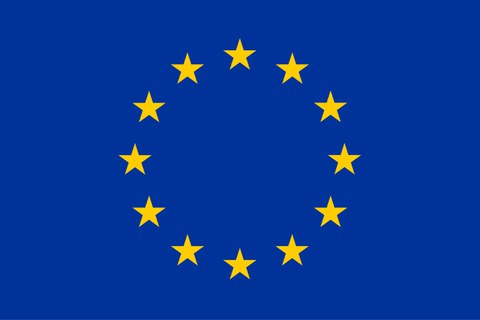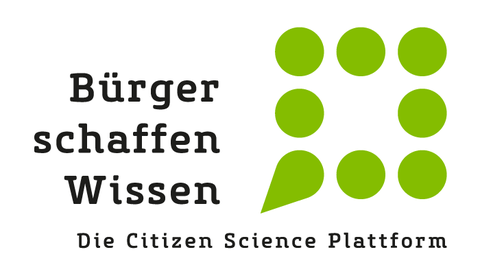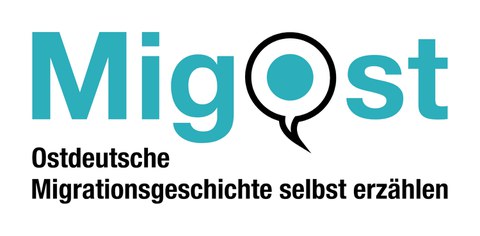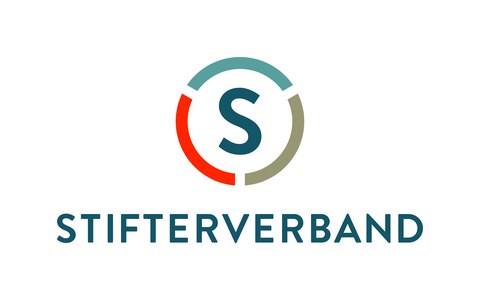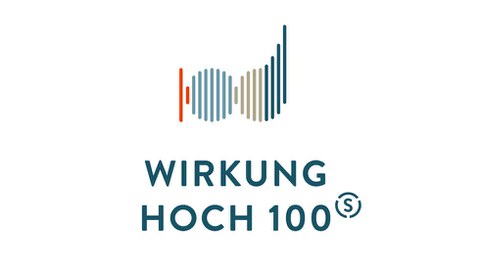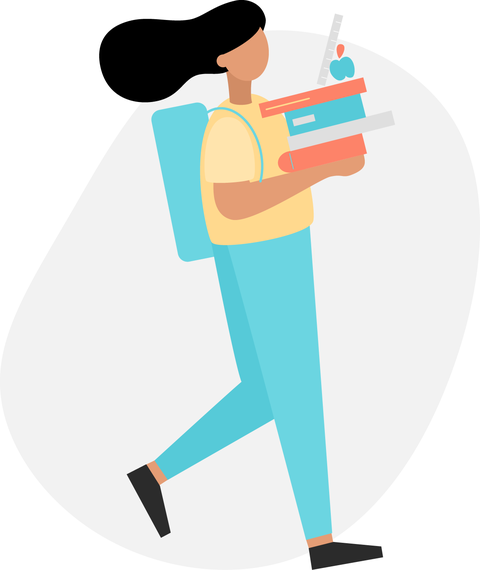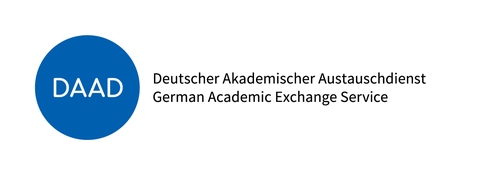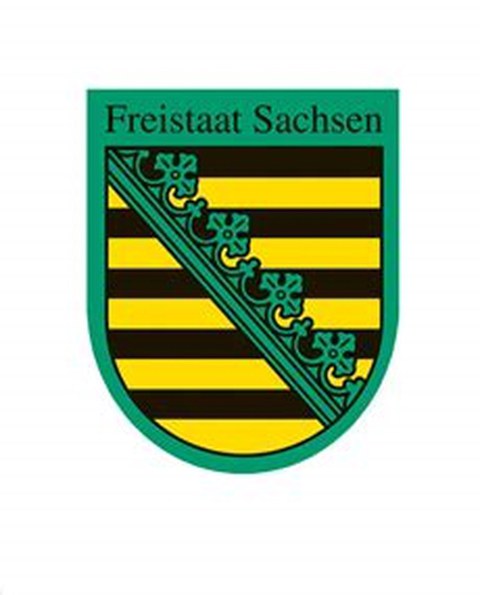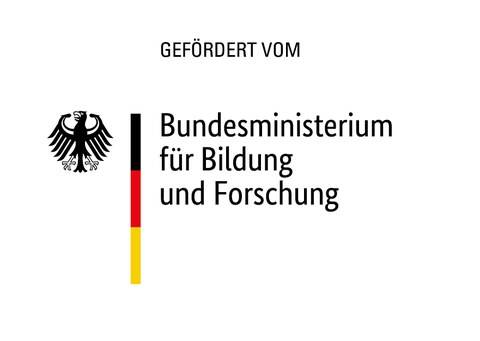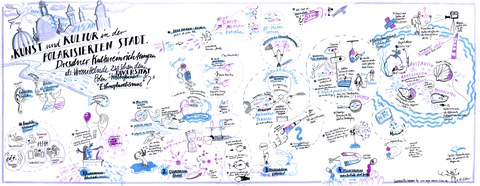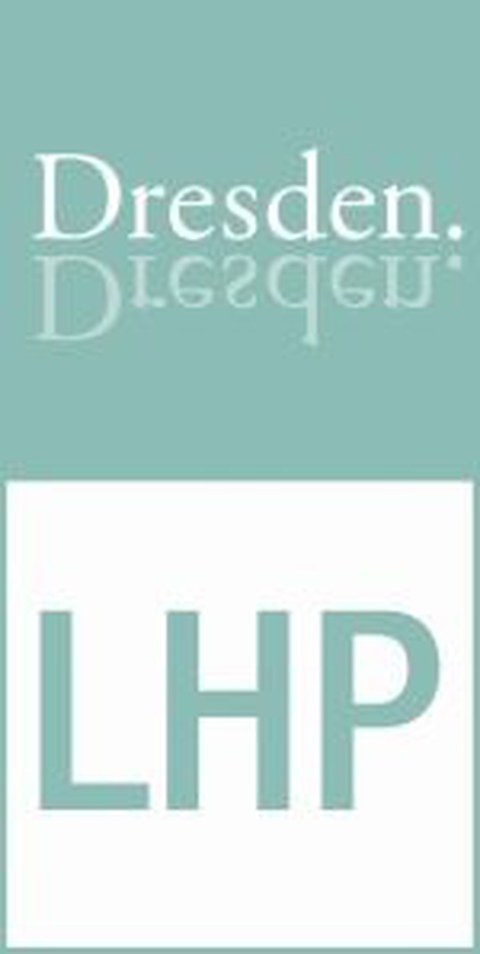Projekte
Inhaltsverzeichnis
Laufende Forschungs- und Transferprojekte
Laufzeit: 01.04.2023 – 31.03.2024
Projektleitung: Dr. Karoline Oehme-Jüngling
Projektmitarbeit: Paolo le Van, Nick Wetschel
Projektkooperationen: Institut für Sächsische Geschichte und Volkskunde Dresden; Prof. Dr. Ira Spieker, Leiterin des Bereiches Volkskunde / Kulturanthropologie
Förderung: Bundesstiftung zur Aufarbeitung der SED-Diktatur
Die Institutionalisierung von Migrant:innen(selbst)organisationen (MSO) in (größeren) Städten der DDR bzw. den neuen Bundesländern ist als ein Effekt des Umbruchs von 1989/90 zu verstehen. Ein pluraler, offener Migrationsdiskurs ist erst infolgedessen über Teilöffentlichkeiten hinaus möglich geworden. Neben Räumen des (interkulturellen) Austauschs und der Information geht es den sich entwickelnden MSO um Fragen des Bleiberechts für Vertragsarbeiter:innen, des politischen Asyls, um Unterstützung von Bürgerkriegsflüchtlingen, die „Integration“ von Spätaussiedler:innen und nicht zuletzt um Alltagsrassismus und rechte Gewalt. Im öffentlichen Diskurs bleiben migrationsgesellschaftliche Themen lange Zeit unterbelichtet, von der Mehrheitsgesellschaft wenig beachtet. Seit einigen Jahren erfährt die wissenschaftliche und gesellschaftliche Auseinandersetzung mit der Migrationsgeschichte der DDR und Ostdeutschlands verstärkte Auseinandersetzung. Das Projekt „Archiving MigOst“ setzt sich mit der frühen Phase der Organisation und Institutionalisierung von MSO und deren Rolle im Transformationsprozess auseinander (ca. 1989-2000), indem es die Selbstarchive der MSO sondiert, erschließt und für die Nachnutzung von Wissenschaft sowie MSO selbst zugänglich macht. In den MSO sind beachtliche Mengen schriftlichen Materials entstanden, die als Quellen für die eigene und die offizielle Geschichtsschreibung von Bedeutung sind. Die Sicherung und Erschließung solcher Wissensbestände in „anderen“ Archiven ist als gesamtgesellschaftlich relevant erkannt worden. Um den Charakter der Selbstarchive zu wahren, nutzt „Archiving MigOst“ einen partizipativen Zugang: Gemeinsam mit fünf beteiligten MSO in Dresden werden Archivwerkstätten konzipiert und umgesetzt. Die Selbstarchivalien werden in einen neuen Bestand des Lebensgeschichtlichen Archivs des Instituts für Sächsische Geschichte und Volkskunde Dresden (Kooperationspartner „Archiving MigOst“) aufgenommen und über Metadaten sinnvoll strukturiert und nutzbar gemacht. Daneben wird eine Handreichung erarbeitet, die erprobte Verfahren anderen MSO zugänglich gemacht, und kurze Organisationsgeschichten der fünf beteiligten MSO veröffentlicht.
Gefördert mit Mitteln der Bundesstiftung zur Aufarbeitung der SED-Diktatur
Laufzeit: 01.01.2022 – 31.12.2023
Projektkoordination: Intenationaler Bund Mitte gGmbH
Projektleitung: Internationaler Bund (IB Mitte)
Projektteilleitung (TP TU Dresden): Prof. Dr. Anke Langer
Projektmitarbeit (TP TU Dresden): Ralph Christoph (2.StEx)
Projektkooperationen: European University Cyprus, Johannes Kepler Universität Linz, Daugavpils tehnikums, Darzhavno predpriyatie, Associazione Italiana Assistenza Spastici, Assistierender Technologie in Europa, European Association of Service Provides for Peoplewith Disabilities
Förderung: Kofinanziert durch das Programm Erasmus+ der Europäischen Union.
Die COVID19-Pandemie hat aufgezeigt, dass eine beträchtliche Anzahl an Lernenden und Lehrkräften nicht auf einen erfolgreichen, zugänglichen und ausgewogenen Fernunterreicht vorbereitet sind. Dies führt zu einer Vielzahl von Problemen, die dringend angegangen werden müssen:
1) Auf administrativer Ebene jeder Schule, um den Prozess der digitalen Vorbereitung zu erleichtern.
2) Auf methodischer Ebene, wo Lehrenden die digitalen Fähigkeiten fehlen.
3) Auf der Ebene der Lernenden, die zwar den Umgang mit Technologien gewohnt sind, aber wo die Familien nicht in der Lage sind auf die Bedürfnisse (Zugang zu Computer, Internet) dieser einzugehen.
Die Lösung dieser Probleme mit besonderen Schwerpunkt auf Barrierefreiheit sind das Ziel des Projektes:
1) Erstellung eines DIG-i-READY Katalogs für bewährte Praktiken mit besonderem Schwerpunkt auf Lösungen
2) Entwicklung eines DIG-i-READY Handbuchs mit sorgfältig entwickelten Indikatoren für digitale Kompetenz und Leitlinien für den "digitalen Wandel", einer Sammlung inklusiver digitaler Tools und einer Empfehlung für einen systemischen Wandel zu einer "neuen und inklusiven Normalität.
Laufzeit: 1.3.2021-29.2.2024
Projektleitung: Dr. Karoline Oehme-Jüngling
Projektmitarbeit: Luise Böhm, Paolo Le van, Franca de Graaf
Verbundpartner: Dachverband Migrant*innenorganisationen in Ostdeutschland Halle (Saale) (DaMOst), Brandenburgische Technische Universität Cottbus (BTU), Institut für Sächsische Geschichte und Volkskunde Dresden e.V. (ISGV), Deutsches Zentrum für Integrations- und Migrationsforschung Berlin (DEZIM)
Förderung: Das Projekt wird im Rahmen des BMBF Förderbereichs Bürgerforschung vom Bundesministerium für Bildung und Forschung gefördert. Es gehört zu 15 Projekten, die bis Ende 2024 die Zusammenarbeit von Bürgerinnen und Bürgern und Wissenschaftlerinnen und Wissenschaftlern inhaltlich und methodisch voranbringen und Antworten auf gesellschaftliche Herausforderungen geben sollen. Weitere Informationen unter:
https://www.bmbf.de/de/buergerforschung-225.html https://www.buergerschaffenwissen.de/
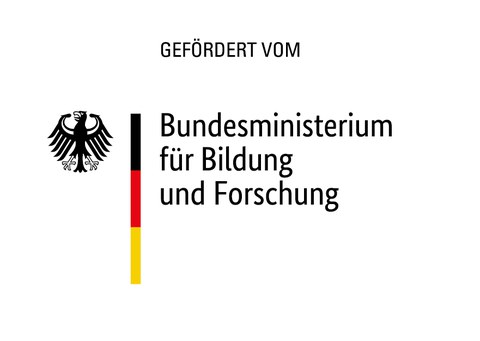
Bundesministerium für Bildung und Forschung
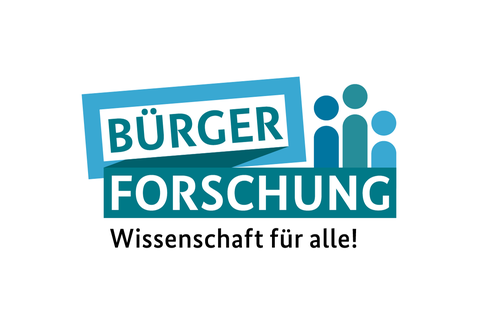
Bürgerforschung
MigOst macht lebensgeschichtliche Erzählungen von Menschen mit Migrationsgeschichte in Ostdeutschland sichtbar. Ziel des Projekts ist es, gemeinsam mit Bürger*innen eine Auseinandersetzung mit Migration und migrationsbezogenen Erfahrungen in Ostdeutschland zu initiieren und partizipativ zu reflektieren. Denn obwohl auch die DDR und Ostdeutschland eine kontinuierliche Geschichte der Migration haben, werden migrantische Perspektiven auf Vergangenheit und Gegenwart bisher marginalisiert. Aus einer Alltagsperspektive sollen Wissen und Erfahrungen von Menschen mit Migrationsgeschichte zu Zeiten der DDR, der Wiedervereinigung bis in die Gegenwart in der Vielstimmigkeit der Erzählenden thematisiert werden. Dabei können Fragen nach Identität und Zugehörigkeit, nach Praxis und Erfahrung des Ankommens, Bleibens und Gehens sowie nach Diskriminierung und Rassismus eine Rolle spielen.
Wie können Bürger*innen mitforschen?
Im Projekt sind drei regelmäßig stattfindende Geschichtswerkstätten in Cottbus, Dresden und Halle geplant, in denen mit verschiedenen Methoden der Gruppendiskussion gearbeitet wird. Dazu eingeladen sind Menschen mit Migrationsgeschichte in Ostdeutschland (Phase 1) und Menschen, die als Arbeitskolleg*innen, Nachbar*innen oder Freund*innen in Ostdeutschland migrationsbezogene Erfahrungen gemacht haben (Phase 2). Die Geschichtswerkstätten werden gemeinsam von migrantischen Organisationen und dem Projektteam entwickelt und durchgeführt. Teilnehmer*innen benötigen außer Interesse am Thema keine weiteren Voraussetzungen. Die Teilnehmer*innen entscheiden als Expert*innen ihrer eigenen Geschichte selbst über die Themensetzung; das Projektteam unterstützt mit methodischer wie theoretischer Expertise.
Sie möchten mitmachen? Dann schreiben Sie uns: migost@damost.de
Wozu trägt die Forschung bei?
Hegemoniale Erinnerungsdiskurse zur ostdeutschen Geschichte weisen in Blickrichtung und gesellschaftlicher Positionierung große Lücken auf: So wird die DDR-Gesellschaft vielfach homogen und weiß imaginiert. Die Biografien etwa von Vertragsarbeiter*innen oder Teilnehmer*innen internationaler Bildungsprogramme, individuelle Migrationserfahrungen in der DDR wie auch migrantisches Wissen der Wende- und Nachwendezeit erfahren wenig öffentliche Aufmerksamkeit. Hinzu kommt, dass die deutsche Migrationsgeschichte in der Forschung meist anhand der westdeutschen Einwanderungsgesellschaft erzählt wird. In der Sozialwissenschaft ist somit eine doppelte Differenzierung und Marginalisierung zu beobachten. In Realität hat die ostdeutsche Gesellschaft selbstverständlich eine fortwährende Historie der Einwanderung. Durch den Blick zurück und das Teilen migrationsbezogener Erfahrungen werden bisherige Ausschlüsse in der Erinnerungskultur sowie dominante Narrative über Ostdeutschland in Frage gestellt.
Laufzeit:
1.11.2020-31.12.2021 (Förderphase 1)
Ab 1.1.2022 (Förderphase 2)
Projektleitung:
Dr. Karoline Oehme-Jüngling (Zentrum für Integrationsstudien), Anke Börsel und Julia Welchering (beide ehemals Erweiterungsfach DaZ)
Förderung: Stifterverband für die deutsche Wissenschaft
digiDaz:Pro ist ein Entwicklungsprojekt der TU Dresden, das im Zuge des Ausbaus des recht jungen Studiengangs Deutsch als Zweitsprache (DaZ) den Herausforderungen eines veränderten Lehr- und Lernalltags zu Corona-Zeiten mit digitalen Tools begegnet. Um die Teilhabe aller Schüler:innen, besonders mit DaZ, auch unter Pandemie-Bedingungen und mit stark verringertem Zugang zu interaktiven Sprachlern-Angeboten zu verbessern, werden digitale Lehr-Lern-Tools entwickelt. Sie sind konzeptionell und systematisch in die anwendende Zielgruppe (Lehrer:innen, Studierende, Schüler:innen) im Bereich DaZ integriert und so fach- und phasenintegrierend wirksam.
Als kooperatives Projekt mit lokalen und überregionalen Partner:innen wirkt es an der Schnittstelle von Bildung und Wissenschaft, indem es die Expertise von Akteur:innen im System Schule mit wissenschaftlich basierten Erkenntnissen unter Nutzung der universitären wissenschaftlichen Infrastruktur bündelt.
Laufzeit: 10.5.2019 -
Projektleitung: AG NESK
Projektpartner: Gewerkschaft Erziehung und Wissenschaft Sachsen, Referat Antidiskriminierung, Migration und Internationales; Landesarbeitsgemeinschaft politisch-kulturelle Bildung Sachsen e.V. (Prokubi); Kinder- und Elternzentrum Kolibri e.V. Dresden
Das Netzwerk Eltern-Schul-Kommunikation (NESK) ist aus einer Seminarreihe im Erweiterungsfach Deutsch als Zweitsprache an der TU Dresden hervorgegangen.
NESK verfolgt zwei Projektlinien: Entwicklung und Forschung. In der Entwicklungslinie trägt das Netzwerk zu einer Professionalisierung und Vernetzung in der Lehrkräftebildung im Bereich Durchgängige Sprachbildung und Migration bei. In der Forschungslinie beschäftigt sich NESK mit den Mitteln und Möglichkeiten des versprachlichten pädagogischen Handelns in der Arbeit mit Eltern und familiären Bezugspersonen.
Im Zielbereich von Lehrkräftebildung und Bildungsinstitutionen nutzt NESK die Mittel der einfachen und verständlichen Sprache. So können die sprachlichen Voraussetzungen für eine gelingende Verständigung zwischen den Akteur:innen bewusst gemacht und erarbeitet werden. Zum Beispiel ist die offene Sammlung von Elternbriefen in verständlicher Sprache entstanden, s. https://www.gew-sachsen.de/aktuelles/detailseite/sammlung-verstaendlicher-elternbriefe-1/
Die Kontinuität des Wissens- und Erfahrungsaustauschs wird durch regionale Netzwerktreffen mit Lehrer:innen aus unterschiedlichen Bildungsbereichen gewährleistet. Für die Vertreter:innen aus KiTas, Grundschulen, Horten und Oberschulen sind die Übermittlungswege ihrer Anliegen und Informationen mithilfe unterschiedlicher Kommunikationsmedien gleichermaßen bedeutsam. Sie bilden ein gemeinsames Arbeitsfeld, das bei den Vernetzungstreffen im Vordergrund steht. So resümierten die Teilnehmer:innen des letzten Treffens, dass eine gute Kommunikation mit den Eltern und familiären Bezugspersonen auch den Kindern zugute komme, was in der täglichen Arbeit positiv zu spüren sei.
Laufzeit: 01.08.2018-31.12.2023
Projektleitung: Prof. Dr. Anke Langner, Professur für Erziehungswissenschaft mit dem Schwerpunkt Inklusive Bildung
Qualifizierungsleitung: Karin Mannewitz
Projektmitarbeit: Laura Schmidt
Projektmitarbeit: Joanna André
Projektkoordination: Arlett Mielisch
Förderung: Die Maßnahme wird mitfinanziert durch Steuermittel auf der Grundlage des von den Abgeordneten des Sächsischen Landtages beschlossenen Haushaltes.
Durch das Projekt „Bildungs- und Inklusionsreferent*innen“ werden Menschen mit sogenannter „kognitiver Beeinträchtigung“ als Wissensvermittler*innen zur Gestaltung von Lehre an Hochschulen befähigt und ausgebildet.
Den Mittelpunkt der Qualifizierungsmaßnahme bildet nicht die Beeinträchtigung der angehenden Bildungs- und Inklusionsreferent*innen, sondern ihr Qualifikationsweg und damit verbunden die Chance individuelle Potentialen an Hochschulen ungehindert einzusetzen, entfalten und nutzen zu können.
Im Rahmen der Vermittlung durch die Bildungs- und Inklusionsreferent*innen an Studierende sowie Lehr-, Fach- und Führungskräfte wird nicht nur beispielhaft bewiesen, wie Inklusion praktisch gelingen kann, sondern sie als selbstverständliche Praxis im Lern- und Lehrprozess gelebt. Diese aktiv gestaltete Wirklichkeit trägt sich in alle Hochschulbereiche hinein.
Durch das Projekt wird bewusst ein Zugang an einer Institution eröffnet, welche sich als Bildungsort beschreiben lässt, an dem die unhinterfragte Tradition des Ausschlusses, durch produzierte Bildungsungerechtigkeiten, schon immer stattgefunden hat.
Vorurteile und vielfältige weitere Barrieren können über und durch das Projekt abgebaut werden. Ein breiteres Bewusstsein an der Hochschule für vorherrschende und als „natürlich“ wahrgenommene exkludierende Bedingungen, die u.a. durch strukturelle konstruierte Ungleichheit und institutionelle Diskriminierung hervorgerufen werden, entsteht. Vor diesem erweiterten Erkenntnishorizont können sie sichtbar, analysiert und überwunden werden.
In diesem Sinne kann das Projekt zur vollen und wirksamen Teilhabe aller Hochschulangehörigen beitragen, weil es u.a. Vorannahmen und Sichtweisen zu Diversität maßgeblich verändern sowie positiv prägen wird.
Das Projekt kann als angewandte Forschung verstanden werden, welches die beschriebenen Mechanismen eines chancengerechten oder chancenverhindernden Zugangs zu Bildung in Hochschulkontexten untersucht, um eine inklusive Struktur, Kultur und Praxis in der akademischen Aus- und Weiterbildung und darüber hinaus etablieren zu können.
Die Qualifizierung der Bildungs- und Inklusionsreferent*innen begann im Februar 2019 an der TU Dresden. Projektstart war der 01.08.2018.
Das Projekt findet statt in Kooperation mit dem Institut „Inklusive Bildung“ der Christian-Albrechts-Universität Kiel und der Universität Leipzig, Erziehungswissenschaftliche Fakultät, Pädagogik im Förderschwerpunkt geistige Entwicklung.
Laufzeit: 01.01.2016-31.12.2023
Projektkoordination: Dr. Karoline Oehme-Jüngling (Zentrum für Integrationsstudien, TU Dresden)
Förderung: Deutscher Akademischer Auslandsdienst (Programm: Welcome - Studierende engagieren sich für Geflüchtete)
Das DAAD Programm „Welcome – Studierende engagieren sich für Geflüchtete“ wurde 2016 ins Leben gerufen und fördert seitdem studentische Initiativen, die sich an deutschen Hochschulen für die Integration von Geflüchteten einsetzen.
Gefördert von
Die Refugee Law Clinic Dresden bildet Studierende zu ehrenamtlichen, studentischen Rechtberater*innen aus und führt eine Beratungsstelle für Geflüchtete an drei Standorten in Dresden.
Die Refugee Law Clinic Dresden ist Teil des DAAD Programms „Welcome – Studierende engagieren sich für Geflüchtete“, welches Studentische Initiativen unterstützt, die sich an deutschen Hochschulen für die Integration von Geflüchteten einsetzen.
Laufzeit: 01.01.2016-31.12.2023
Projektkoordination: Dr. Karoline Oehme-Jüngling (Zentrum für Integrationsstudien, TU Dresden)
Förderung: Deutscher Akademischer Auslandsdienst (Programm: Welcome - Studierende engagieren sich für Geflüchtete)
Das DAAD Programm „Welcome – Studierende engagieren sich für Geflüchtete“ wurde 2016 ins Leben gerufen und fördert seitdem studentische Initiativen, die sich an deutschen Hochschulen für die Integration von Geflüchteten einsetzen.
Gefördert von
Ziel von IDA ist die Vermittlung und Koordination freiwilliger Hilfsangebote von Studierenden für Geflüchtete sowie die Entwicklung von Strukturen, welche zur Integration Geflüchteter beitragen, bzw. zum interkulturellen Austausch zwischen Geflüchteten und Studierenden im Besonderen und zwischen Geflüchteten und allen Dresdnern im Allgemeinen. Zur Erfüllung ihrer Aufgaben arbeitet IDA mit anderen Organisationen zusammen, die sich in den Aufgabenfeldern ebenfalls engagieren.
Hervorgegangen aus einer studentischen Gruppe, die von September 2015 bis April 2016 Sprachkurse und ABC-Tische für Geflüchtete in den Erstaufnahmeeinrichtungen auf dem Gelände der TUD organsierte, arbeitet IDA heute in vier zentralen Aufgabenfeldern.
1. Organisation von Angeboten zum Erlernen der deutschen Sprache mit freiwilligen Lehrer*innen
2. Sprachkurse von Geflüchteten für Studierende
3. Patenschaftsprogramm für geflüchtete Studierende und Interessierte
4. Politische Bildung und Sensibilisierung von Studierenden
Die Initiative "IDA - In Dresden Ankommen" ist Teil des DAAD Programms „Welcome – Studierende engagieren sich für Geflüchtete“, welches Studentische Initiativen unterstützt, die sich an deutschen Hochschulen für die Integration von Geflüchteten einsetzen.
Abgeschlossene Forschungs- und Transferprojekte
Laufzeit: 1.3.2021-28.2.2023
Projektleitung: Andreas Koth (Internationaler Bund)
Teilprojektleitung: Prof. Dr. Anke Langner, Erziehungswissenschaften mit Schwerpunkt Inklusive Bildung
Projektbearbeitung: Ralf Christoph (M.A.)
Projektpartner:
- Internationaler Bund - IB Mitte gGmbH für Bildung und Soziale Dienste Niederlassung Sachsen
- Best Institut für berufsbezogene Weiterbildung und Personaltraining GMBH (Österreich)
- Profesionalas izglitibas kompetences centrs "Daugavpils tehnikums" (Lettland)
- CEIP "Félix Cuadrado Lomas" (Spanien)
Förderung: Funded by the European Union
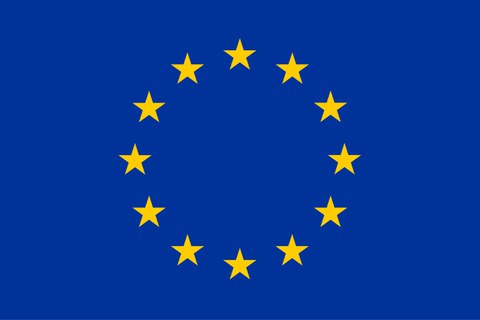
Funded by the European Union
In just three years, as many as 28 billion (digital) devices will be networked worldwide, according to a study of the American network equipment supplier Cisco. Artificial Intelligence (AI), one mega trend of the future within digitisation, is a very advanced element of it. Thanks to built-in algorithms, machines can recognise certain patterns, for example when software "understands" a German sentence and translates it into English. On computers, algorithms filter search results, recommend songs, books and shampoos and block unwanted mail. On the smartphone and tablet, programs wait for voice commands and also register every conversation and change of location very carefully. These are examples from everyday life - but also much larger AI dimensions are reality already. While reports on Wall Street or the German Stock Exchange show nervous stock traders in front of screens, in reality it is algorithms that determine the majority of trading today. Even more uncanny is the development in e.g. China, where a "social credit rating system" collects every click on the net and every time a person crosses a red light in order to sanction or reward the individual afterwards (e.g. with cheaper loans or a block on long-distance travel tickets). And this approach is spreading over to other countries (like Venezuela, Korea ...) due to their business contacts. It is unquestionably digital skills and critical thinking that are among the 21st Century Skills (OECD, EU) that have to be better implemented in school curricula and education within a holistic approach, first to set up a new mind set with educators - critical thinking and ethical principles must be implemented together with digital skills - and secondly to better address the increasing pace of change in work and social life. Certainly, it is difficult "preparing students for jobs and technologies that don’t yet exis, in order to solve problems that we don’t even know are problems yet”, but this should be today’s main task of schools even more than in the past and educators need to be informed and prepared, learners taught accordingly. However, schools in general also need to learn more about business realities and find didactic answers to policy makers‘ guidelines or any lack of them (e.g . "Ethics Guidelines for Trustworthy AI" should be part of ethics classes , as well as more business cases and experimental learning), particularly in countries that do not (yet) belong to AI hot spots, like Austria, Latvia or Spain, partnering in this project with Germany. The ArtIn Future project wants to address these issues by developing, testing and then providing three innovative major outputs to upper primary, secondary and VET schools, teachers and their pupils:
- ArtIn Future - Ethics in Artificial Intelligence – training material to "clean up" with AI myths, show AI differences and ethical principles and empower critical thinking;
- ArtIn Future Digital skills – an experiential training course to develop digital skills for educators working particularly with young (adult) learners exploring "weak" AI (like algorithms that already today read patterns from data sets that humans could never recognise);
- ArtIn Future - AI in the Business world, a OER HUB presenting AI show cases from companies, products designed applying AI, success stories of (female) entrepreneurs in this field to help better understand how companies use AI and which competences are needed to perform these tasks.
These intellectual outcomes will be supported by a variety of management related products and a series of multiplier events during the ArtIn Future Show Case month towards the end of the project implementation. This "roadshow" style of promotion event shall reach at least 110 potential multipliers and mainstreaming participants. The project will directly involve 125 educators - coming from secondary to higher vocational education levels - and 250 of their learners in Germany, Austria, Latvia and Spain and will reach by its foreseen further dissemination activities (like online representation and information) min. 6000 people accross Europe.
The partner organisations, schools and vocational education providers are confident to increase knowledge on Artificial Intelligence, and above all, raise awareness about ethics in this type of knowledge/ business area and in the use of different digital tools, particularly true for girls/ young women.
Laufzeit: 1.5.2021-30.4.2023 (Entwicklungsphase)
Projektleitung: Dr. Patricia Ward
Förderung: Die Entwicklungsphase wird vom Bundesministerium für Bildung und Forschung (BMBF) und dem Freistaat Sachsen im Rahmen der Exzellenzstrategie von Bund und Ländern gefördert. Dieses Projekt beginnt voraussichtlich am 01.05.2023 und wird von der Deutschen Forschungsgemeinschaft gefördert.
Wie organisiert die Vertreibung, die als ein beispielloses globales Problem dargestellt wird, die Gesellschaft? Wie mobilisiert und ordnet die Wahrnehmung von jemandem oder etwas als "fehl am Platz" (z.B. Flüchtlinge, Asylsuchende) den "Wert" von menschlichen und nicht-menschlichen Ressourcen in unserer Welt?
Im Projekt HumGlobal werden diese Fragen unter dem Aspekt der "humanitären Logistik" betrachtet, die von den Akteur:innen der Entwicklungshilfe als Schlüsselkomponente zur Verhinderung von Vertreibungen angepriesen wird. Wissenschaftler:innen und Praktiker:innen dokumentieren seit langem wie Hilfspraktiken und Logistik soziale Ungleichheiten abmildern, aber auch produzieren. Der Umfang und die Bedeutung des Begriffs "humanitäre Logistik" sind jedoch nach wie vor unklar und unbestimmt. Das Projekt versucht diese Mehrdeutigkeit zu erklären und zu zeigen, wie sie erstens konkurrierende Logiken zwischen staatlichen und nicht-staatlichen Akteuren hinsichtlich der Frage widerspiegelt, wie humanitäre Hilfe organisiert werden sollte, um Vertreibung zu verhindern und darauf zu reagieren. Zweitens wird in diesem Projekt untersucht, inwieweit diese Ambiguität auch auf die sich verändernden Beziehungen und Machtpositionen im heutigen humanitären Bereich hinweist, insbesondere im Hinblick auf die immer stärkere Beteiligung privater Akteure in diesem Sektor. Dieses Projekt ist in dieser Hinsicht besonders auf die Rolle der "nicht-westlichen" und "globalen Süd"-Beziehungen ausgerichtet, Gruppen, die trotz ihrer bedeutenden Rolle empirisch und theoretisch weitgehend unberücksichtigt bleiben (die Golfregion ist beispielsweise ein Beispiel dafür: Sie verfügt über die weltweit größte Einrichtung für die Lagerung und Koordination humanitärer Hilfsgüter!) Die Betrachtung des Letzteren erweitert das Verständnis darüber, wie "Vertreibung" organisiert, was und wer in verschiedenen sozialen Ordnungen und Kontexten als "in" oder "out" gilt, über Gruppen hinaus, die üblicherweise als "vertrieben" analysiert und klassifiziert werden. Darüber hinaus wird aufgezeigt, wie "Vertreibung" den Mobilitätsstatus quo an mehreren Fronten erschüttert und die Beteiligung "vieler beweglicher Teile" hervorruft, um diese Machthierarchien und Wertordnungen in der Gesellschaft wiederherzustellen, zu reorganisieren oder in Frage zu stellen. Obwohl sich dieses Projekt noch in einem frühen Entwicklungsstadium befindet, wird davon ausgegangen, dass diese Forschung zu einem genaueren Verständnis der Beziehung zwischen humanitärer Hilfe und Mobilität beitragen und die Annahmen, die der "Funktionsweise der Hilfe" zugrunde liegen, über die globalen Nord-Süd-Erklärungen hinaus "aufbrechen" wird. Dieses Projekt könnte in der Folge ein umfassenderes Bild der Prozesse, Beziehungen und Kämpfe bieten, die Vertreibung formen (und von ihr geformt werden), sowie der sozialen Ungleichheiten und Hierarchien, die sich daraus ergeben.
Hinweis: Dieses Projekt befindet sich noch in der Entwicklungsphase und wird voraussichtlich am 01.05.2023 mit einer Förderung durch die Deutsche Forschungsgemeinschaft beginnen.
Note: This project is still in the development phase and is expected to tentatively begin on 01.05.2023 with funding awarded by the German Research Foundation.
https://Entwicklungsphase (wird fortgefütu-dresden.de/gsw/forschung/exzellenzmassnahmen/tudisc
https://tu-dresden.de/gsw/forschung/exzellenzmassnahmen/tudisc/projekte#section-7
Laufzeit: 01.10.2021-31.12.2024
Projektleitung: Prof. Dr. Dominik Steiger und Dr. Karoline Oehme-Jüngling (Zentrum für Integrationsstudien, TU Dresden)
Projektkooperationen: Diakonisches Werk der Ev.-Luth. Landeskirche Sachsens e.V. und Arbeiterwohlfahrt (AWO) Sachsen
Förderung: Sächsisches Staatsministerium der Justiz und für Demokratie, Europa und Gleichstellung
Die Refugee Law Clinic Dresden (RLCD) bietet unentgeltliche und unabhängige Rechtsberatung zu Fragestellungen des Asyl- und Aufenthaltsrechts an und trägt damit zur Rechts- und Interessenswahrung Geflüchteter und Migrant:innen bei. Die juristische Beratung und Begleitung der in diesen Rechtsgebieten Ratsuchenden übernehmen Studierende, die im Ergänzungsbereich der universitären Lehre an der TU Dresden zu ehrenamtlichen Rechtsberater:innen ausgebildet werden.
Das Projekt beinhaltet demnach die Ausbildung von studentischen ehrenamtlichen Migrationsrechtsberater:innen, die Supervision und engmaschige Betreuung und Ausbildung durch eine Volljuristin sowie die wissenschaftliche Projektbegleitung.
Die Ausbildung finde auf dem Rechtsgebiet des Migrationsrechts – insbesondere im Asyl- und Aufenthaltsrecht – statt. Dieses findet sich selten als Lehrstoff im Studium der Rechtswissenschaften oder anderen Studiengängen (Politikwissenschaften, Soziale Arbeit etc.) und gehört nicht zum Pflichtinhalt für das erste Staatsexamen. Nur wenige Lehrstühle rechtswissenschaftlicher Fakultäten legen ihren Lehr- und Forschungsschwerpunkt auf das Migrationsrecht. Die RLCD-Ausbildung vermittelt Fachwissen auf dem Spezialgebiet des Migrationsrechts. In der Ausbildung werden Studierende in zwei Semestern zu ehrenamtlichen Rechtsberater:innen im Asyl- und Aufenthaltsrecht ausgebildet.
In sechs Beratungsstellen in Dresden, unter anderem in Erstaufnahmeeinrichtungen, berät die RLCD Geflüchtete zu aufenthaltsrechtlichen Fragen; pandemiebedingt findet ein Großteil der Beratungsangebote aktuell online statt.
Laufzeit: 1.1.2021-31.12.2022
Projektleitung: Dr. Karoline Oehme-Jüngling (Wissenschaftliche Koordinatorin, Zentrum für Integrationsstudien), Dr. Julia Schulze Wessel (Geschäftsführerin, anDemos - Institut für angewandte Demokratie- und Sozialforschung e.V.), Dr. Oliviero Angeli (Wissenschaftlicher Koordinator, MIDEM), Prof. Dr. Michael Kobel (Professor Teilchenphysik, ehrenamtlicher Leiter der AG Arbeit und Ausbildung für Geflüchtete im Netzwerk Willkommen in Löbtau e.V. und Vorstandsmitglied Sächsischer Flüchtlingsrat e.V.)
Projektmitarbeit: Steve Bittner (M.A.)
Kooperationen: Kulturbüro Sachsen e.V. (Grit Hanneforth), Richters Buchhandlung (Christine Polak)
Förderung: Gefördert vom Bundesministerium für Bildung und Forschung (BMBF) und dem Freistaat Sachsen im Rahmen der Exzellenzstrategie von Bund und Ländern
Gesellschaft im Dialog ist die Forsetzung der Veranstaltungsreihe "Vielfalt im Dialog" aus dem Jahr 2020 als Teil von TU Dresden im Dialog - Transferaktivitäten im Rahmen der Exzellenzstrategie der TU Dresden.
Unter dem Titel "Vielfalt im Dialog" startete im Herbst 2020 eine Veranstaltungsreihe an der TU Dresden, die mit verschiedenen zivilgesellschaftlichen Kooperationspartner*innen über Themen der Migration, Integration und Rassismus mit einer breiten sächsischen Öffentlichkeit ins Gespräch gekommen ist. In unterschiedlichen Formaten wie einem Kunstworkshop, Lesungen und Podiumsdiskussionen wurden vor dem Hintergrund aktueller Forschungserkenntnisse und Praxiserfahrungen neue Perspektiven auf Themen der Migrationsgesellschaft gemeinsam entwickelt und diskutiert. Diese Veranstaltungsreihe wird in diesem Jahr unter dem Titel "Gesellschaft im Dialog" fortgeführt.
Programm & weitere Infos
... finden Sie auf unserer Projektwebsite.
Laufzeit: 01.03.2019-30.06.2021
Projektleitung: Prof. Dr. Anke Langner, Erziehungswissenschaften mit Schwerpunkt Inklusive Bildung
Projektbearbeitung: Dr. Andrea Fischer-Tahir
Projektpartner: BFW Halle (Saale) gGmbH und Deutsches Forschungszentrum für künstliche Intelligenz – Berlin (DFKI)
Förderung: Deutsche Rentenversicherung
Digitalisierung im Funktionssystem Wirtschaft sowie der neoliberale Umbau von Markt und Staat stellen Blinde und Sehbehinderte vor spezifische Herausforderungen. Auch die berufliche Bildung und Rehabilitation befasst sich mit der Frage, wie Arbeitsplätze von Menschen mit Seheinschränkung angepasst oder wie durch Qualifizierung digitale Fähigkeiten und Fertigkeiten effektiver vermittelt werden können. Gleichzeitig erfordert Arbeiten 4.0 auch ein Lernen 4.0, also eine Digitalisierung im Rahmen der Kompetenzentwicklung: Fernunterricht; Remote-Lernen via Internet oder Onlinekurse. Das Projekt untersucht Barrieren, die aus den Wechselwirkungen zwischen Wirtschaft und Gesellschaft auf der einen, Gesundheit und Erwerbsbiographie auf der anderen Seite entstehen und analysiert die soziale Vorstrukturierung, Ausgestaltung sowie Konsequenzen von Interventionen der beruflichen Rehabilitation. Mit Hilfe von Fokusgruppendiskussionen und narrativen Interviews sowie einem Forschungsansatz, der von der deutschsprachigen Kritischen Behindertenpädagogik, von Interpretativer Soziologie sowie Praxistheorie geleitet ist, plädiert das Projekt dafür, die Inklusion seheingeschränkter Akteur*innen nicht als Frage von „Bedarfen“ und „Maßnahmen“, sondern als Frage von sozialer Gerechtigkeit zu behandeln.
Laufzeit: 01.01.2018-31.12.2020
Projektleitung: Prof. Dr. Anke Langner
Verbundpartner: Anzhela Preissler, Fraunhofer Zentrum für Internationales Management und Wissensökonomie Leipzig; Prof. Dr. Carolin Frank, Bergische Universität Wuppertal, Fakultät für Maschinenbau und Sicherheitstechnik, Maschinenbau
Projektmitarbeit: Prof. Dr. Anja Besand, David Jugel, Judith Jung, Prof. Dr. Petra Kemter-Hofmann, Prof. Dr. Thomas Köhler, Prof. Dr. Rolf Koerber, Clemens Milker, Prof. Dr. Manuela Niethammer, Marlis Pesch, Annekathrin Pollmann, Prof. Dr. Marcus Schütte, Jan Steffens, Katrin Wesemeyer, Prof. Dr. Dorothee Wieser
Förderung: Bundesministerium für Bildung und Forschung
Das Projekt SING verknüpft die fach- bzw. berufsdidaktische mit der sonderpädagogischen Perspektive, um Kompetenzen für die Entwicklung eines inklusiven Fachunterrichts - also Unterricht, der jeden einzelnen Schüler/jede einzelne Schülerin in seiner/ihrer Entwicklung möglichst wirksam unterstützt und befähigt – bei Lehramtsstudieren aufzubauen. Dafür werden die eher theoriegeleiteten Ansätze der berufs- bzw. fachdidaktischen Entwicklung von Lernsettings mit empirischen Ansätze des fallbasierten, forschenden Lernens verknüpft. Es wird ein Instrument erarbeitet, durch das die fachspezifische Diagnostik der Lernstände der Lernenden mit der fach- bzw. berufsdidaktischen Analyse der Aneignungsgegenstände verbunden und eine darauf aufbauende Inszenierung von Lernsettings abgeleitet werden kann. Die didaktisch entwickelte Lernumgebung wird bildungstechnologisch unterstützt und über eine responsive Lernplattform allen Beteiligten verfügbar gemacht. Hierüber werden auch Lernergebnisse erfasst und für die prozessbegleitende Lernstanderhebung und Beratung ausgewertet.
Studierende untersuchen, entwickeln und evaluieren Lehr-Lern-Settings, wodurch Universität und Schule als inklusive Lernorte etabliert und weiterentwickelt werden. Betreut werden sie von bi-professionellen Dozent_innenteams aus Fachdidaktik und Sonderpädagogik. Prozess- und somit projektbegleitend werden Kompetenzen der Student_innen erhoben und analysiert, um Aussagen über die Wirksamkeit der Maßnahme hinsichtlich des Aufbaus von Lehrkompetenzen für inklusiven Fachunterricht treffen und Adaptionen im Lehrkonzept zeitnah realisieren zu können.
SING fokussiert auf die Mikroebene der Bildungsgestaltung. Entwicklung pädagogischer Angebote ist jedoch ohne Schulentwicklung nicht nachhaltig – insofern analysiert SING in beteiligten Schulen Anforderungen an das Prozessmanagement zur Organisation inklusiver Schule und entwickelt ein Pilot-Organisationsmodell “Inklusive Schule”.
Laufzeit: 13.10.2020-26.1.2021
Projektleitung: Prof. Dr. Sarah Hägi-Mead (Institut für Bildungsforschung, Bergische Universität Wuppertal), Dr. Beatrice Müller (Institut für Germanistik, Universität Wien), Prof. Dr. Hannes Schweiger (Institut für Germanistik, Universität Wien), Dr. Michael Dobstadt (Professur für Deutsch als Fremdsprache & Zentrum für Integrationsstudien, TU Dresden), Dr. Karoline Oehme-Jüngling (Zentrum für Integrationsstudien)
Projektpartner: Bergische Universität Wuppertal, Universität Wien
In den letzten Jahren ist mit Blick auf die Problematik der Benachteiligung von Kindern aus "bildungsfernen Schichten" und mit "Migrationshintergrund" der Begriff der "Bildungssprache" (Gogolin 2009) zu einem Schlüsselbegriff im Diskurs um Schule und Bildung geworden. In der Ringvorlesung soll dieser Terminus nicht nur in seiner sprachen- und bildungspolitischen Bedeutung reflektiert und begründet, sondern er soll vor allem in seinem schillernden Facettenreichtum, seiner - auch ideologischen - Aufgeladenheit, seiner linguistischen Unterbestimmtheit, seiner mangelnden empirischen Fundierung und nicht zuletzt in seiner Ambivalenz diskutiert und ergründet werden.
Wenn von "Bildungssprache" die Rede ist, geht es einerseits um die Gewährung bzw. Verweigerung des Zugangs zu gesellschaftlichen Ressourcen qua Sprache. Andererseits geht es um ein damit verknüpftes Verständnis von Sprache, um ein Verständnis des Verhältnisses von Sprache und Subjekt, und damit um ein Bündel von bislang kaum durchschauten Konzeptualisierungen, Zuschreibungen, Narrativen und schließlich auch Praktiken. Diese gilt es kritisch zu reflektieren und besser zu verstehen. Denn sie konstituieren Bildungssprache als ein enorm wirkmächtiges Konstrukt in unterschiedlichen Bildungskontexten. Dessen Potenzial soll dabei nicht zuletzt in der Lenkung der Aufmerksamkeit auf die Bedeutung der Sprache im Bildungsprozess gesehen werden. Um ihr Rechnung zu tragen, erscheint im Kontext dieser Ringvorlesung der Begriff der Bildungssprache mit dem Begriff der Sprachenbildung verkoppelt. Impliziert ist, dass Sprachenbildung eine Aufgabe nicht nur der Schule sein kann, sondern aller Bildungsinstitutionen sein muss: von der Elementarpädagogik bis zur Hochschule. Dabei spielt die Zusammenarbeit der jeweiligen Bildungsinstitutionen mit anderen Akteur*innen und Einrichtungen eine wichtige Rolle. Sprachenbildung wird als Aufgabe aller an Bildungsprozessen Beteiligter verstanden und erfordert dementsprechend interdisziplinäre Zugänge, wie sie in dieser Ringvorlesung zur Sprache kommen.
Weitere Informationen können hier eingesehen werden: www.tu-dresden.de/zfi/bildungssprachen
Laufzeit: 01.07.2020-31.12.2020
Projektleitung: Dr. Karoline Oehme-Jüngling, Dr. Julia Schulze Wessel, Dr. Oliviero Angeli, Prof. Dr. Michael Kobel
Projektbearbeitung: Steve Bittner, M.A.
Projektpartner: anDemos e.V. und Kulturbüro Sachsen e.V.
Förderung: Gefördert vom Bundesministerium für Bildung und Forschung (BMBF) und dem Freistaat Sachsen im Rahmen der Exzellenzstrategie von Bund und Ländern. Als Teil von „TU Dresden im Dialog“ – Transferaktivitäten im Rahmen der Exzellenzstrategie der TU Dresden.
„Vielfalt im Dialog“ heißt die neue Veranstaltungsreihe an der TU Dresden, die mit verschiedenen zivilgesellschaftlichen Kooperationspartnern im Herbst / Winter 2020 über Themen der Migration mit einer breiten sächsischen Öffentlichkeit ins Gespräch kommen möchte. Mit unterschiedlichen Formaten wie einem Kunstworkshop, Lesungen und Podiumsdiskussionen sollen mit aktuellen Forschungserkenntnissen und Praxiserfahrungen neue Perspektiven auf Themen der Migrationsgesellschaft gemeinsam entwickelt und diskutiert werden. Konzipiert und organisiert wird die Veranstaltungsreihe durch den Themenzirkel „Migration und Integration“ der TU Dresden, die aus dem Zukunftslabor „FAKE SCIENCE?! Wissenschaft zwischen gesellschaftlicher Verantwortung und Skepsis“ (Juni 2019) hervorging, sowie zwei außeruniversitären Institutionen: anDemos – Institut für angewandte Demokratie- und Sozialforschung e.V. und das Kulturbüro Sachsen e.V.: Dr. Karoline Oehme-Jüngling (Zentrum für Integrationsstudien), Dr. Julia Schulze Wessel (anDemos e.V.), Prof. Dr. Michael Kobel (Professur Teilchenphysik, Willkommen in Löbtau e.V., Sächsischer Flüchtlingsrat e.V.), Dr. Oliviero Angeli (MIDEM, Institut für Politikwissenschaft), Grit Hanneforth (Kulturbüro Sachsen e.V.). Die Veranstaltungsreihe wird unterstützt durch die Initiative „TU Dresden im Dialog“ im Rahmen der Exzellenzstrategie. Die Veranstaltungen, die aufgrund der aktuellen corona-bedingten Einschränkungen vor allem digital stattfinden, können abgerufen werden unter: www.tu-dresden.de/exzellenz/vielfalt-im-dialog
Laufzeit: 01.08.2016-31.07.2020
Projektleitung: Laura Rind-Menzel
Förderung: Zukunftskonzept der TU Dresden (Exzellenzinitiative des Bundes und der Länder), Sächsisches Staatsministerium für Wissenschaft und Kunst
Mit dem Anstieg der Zuwanderungszahlen wurden v. a. in den vergangenen fünf Jahren zahlreiche Bildungsangebote für Migrant*innen bereitgestellt. Sie sollen die gesellschaftliche und politische Teilhabe der Zugewanderten als zukünftige Staatsbürger*innen der Bundesrepublik beitragen. Zudem sollen sie eine Unterstützungsleistung für den Orientierungs- und Integrationsprozess in die deutsche Gesellschaft darstellen.
Untersuchungsgegenstände des Forschungsprojektes sind Integrationskurse und deren Materialien wie Lehrwerke, Curricula und Lehrer*innenhandreichungen sowie auch Erklärvideos und Broschüren, die für das Ankommen und die Einbürgerung in Deutschland zur Verfügung gestellt werden. Diese Angebote nehmen politische, gesellschaftliche und kulturelle Themen in den Blick, von denen angenommen wird, dass sie für Zugewanderte und ihren Bürgerwerdungsprozess in Deutschland von zentraler Bedeutung sind.
Aus der Perspektive politischer Bildung wird in dem Forschungsprojekt untersucht, inwiefern die benannten Angebote einen angemessenen Beitrag zur Förderung von politischer und gesellschaftlicher Teilhabe leisten können. Weisen die Angebote evtl. trotz bester Absichten bestimmte Eigenschaften auf, die die Teilwerdung und Teilhabe zugewanderter Menschen konterkarieren? Im Zentrum der Untersuchung steht daher die Frage, wie die angebotsimmanenten Bildungsprozesse für eine kulturell heterogene Nutzer- bzw. Zielgruppe ausgestaltet sind. Auch die Integrations- und Ankommenserfahrungen sowie die Perspektiven und Bedürfnisse von Migrant*innen werden in den Forschungsprozess einbezogen: Schließlich werden die Inhalte, Wege und Mittel, die man Zugewanderten offeriert, den üblichen „Bürgerwerdungsangeboten“ der politischen Bildung und den darin vorhandenen Vorstellungen über Teilwerdung und Teilhabe gegenübergestellt.
Laufzeit: 01.09.2016-05.01.2020
Projektleitung: Dr. Carolin Eckardt (Zentrum für Integrationsstudien, TU Dresden)
Förderung: Zukunftskonzept der TU Dresden (Exzellenzinitiative des Bundes und der Länder), Sächsisches Staatsministerium für Wissenschaft und Kunst
Das Forschungsprojekt setzt sich mit der Funktionalisierung von ‚Kompetenz‘ in der Praxis der 'Integrationsarbeit' auseinander. In Bezug auf unterschiedliche ‚Integrationssysteme‘ wird danach gefragt, welchen Einfluss die Modellierung von (fachlichen und sprachlichen) Kompetenzkonzepten und die damit verbundenen normativen Orientierungen auf die Produktion von Inklusion und Exklusion in migrationsgesellschaftlichen Zusammenhängen haben.
Laufzeit: 01.07.2017-31.12.2019
Projektleitung: Dr. Torsten Andreas, Anke Börsel (Deutsch als Zweitsprache, TU Dresden), Frank Beier (ZLSB, TU Dresden)
Projektmitarbeit: Julia Welchering
Förderung: Stifterverband für die Deutsche Wissenschaft
Spracherwerb ist die zentrale Voraussetzung für Integration. Aktuell stellen die unter 25-jährigen die größte Gruppe unter den Neuzugewanderten dar, dies ist ein Novum in der Migrationsgeschichte Deutschlands seit 1945. Der Freistaat Sachsen hat daher verstärkt Vorbereitungsklassen an den allgemein- und berufsbildenden Schulen eröffnet, für die professionelle Akteure notwendig sind. Die TU Dresden hat für die Ausbildung von Lehrkräften das Erweiterungsfach Deutsch als Zweitsprache (DaZ) zum 1.10.2016 eingerichtet, da der Bedarf an qualifizierten DaZ-Lehrkräften im Freistaat Sachsen nicht gedeckt werden kann.
Mit dem Start des Erweiterungsfaches Deutsch als Zweitsprache zum Wintersemester 2016/17 ist die Grundlage für eine fundierte Ausbildung von Lehramtsstudierenden aller Fachrichtungen und Schularten geschaffen worden. Das Curriculum des Erweiterungsfaches nimmt den Grundgedanken der sächsischen Konzeption zur Integration von Migranten auf, die sich im Ansatz von sprachlicher Bildung als integrierter Teil des Fachunterrichts verorten lässt.
Das Projekt „Spracherwerb im Spannungsfeld interkultureller pädagogischer Beziehungen“ trägt dazu bei, das Erweiterungsfaches DaZ zu profilieren und dabei insbesondere die Entwicklung und Erprobung eines nach Alter und Schulart differenzierten curricularen Kernbausteins für das Curriculum an der Technischen Universität Dresden voranzutreiben.
Stifterverband für die Deutsche Wissenschaft (2019): Lehrkräftebildung für die
Schule der Vielfalt. Professioneller Umgang mit Migration und Mehrsprachigkeit. Eine Handreichung des Netzwerks Stark durch Diversität. Essen (Online verfügbar hier).
Laufzeit: 01.11.2017 - 31.10.2019
Projektleitung: Ann-Kathrin Kobelt (Zentrum für Integrationsstudien, TU Dresden), Dr. Michael Dobstadt (Professur Deutsch als Fremdsprache, TU Dresden)
Projektmitarbeit: Frauke Al Mohammad, Dr. Solveig Buder, Michael Rollberg
Kooperationspartner: Jugend · Arbeit· Bildung e.V.; Die Sprachwerkstatt Dresden
Sprache, Wissen und Können ebnen Zugänge zu (Aus)Bildung und Arbeit. Das gilt auch für (Neu)Zugewanderte. Aufgrund geänderter Rahmenbedingungen der Integrationskurse seit 2015 müssen die bestehenden Regularien und Mechanismen überprüft werden. Deshalb wurden Akteure aus den Feldern Vermittlung und Erwerb der deutschen Sprache, (Aus)Bildung und Arbeit aufgerufen, Herausforderungen und Probleme im Bottom-Up-Verfahren aufzuzeigen sowie gemeinsam konkrete Lösungsansätze zu eruieren. Die vorliegenden Handlungsempfehlungen gelten als Synthese des am Fachtag Deutsch für Geflüchtete von Anfang an (ZfI, September 2017) und in der Informationsveranstaltung Deutsch lernen in Dresden (LHD, Oktober 2017) ausgemachten, enormen Gesprächs-, Aufklärungs- und Handlungsbedarfs. Im Nachgang dieser beiden Veranstaltungen werden die Herausforderungen, Probleme sowie Lösungsansätze gebündelt, geprüft und niedergeschrieben. Mit den Handlungsempfehlungen wollen sich die Federführenden und Mitwirkenden Gehör verschaffen sowie Unterstützung bei relevanten Akteuren auf verschiedenen Ebenen gewinnen.
Laufzeit: 01.09.2016-31.10.2019
Projektleitung: Ann-Kathrin-Kobelt (Zentrum für Integrationsstudien, TU Dresden)
Förderung: Zukunftskonzept der TU Dresden (Exzellenzinitiative des Bundes und der Länder), Sächsisches Staatsministerium für Wissenschaft und Kunst
SprINTERgration - Positionen zwischen Sprachen bei Sprach- und Integrationsmittelnden in Deutschland
Im Dissertationsprojekt von Ann-Kathrin Kobelt werden Interviews mit Sprach- und Integrationsmittelnden (SprInt) geführt und mittels Dokumentarischer Methode analysiert.
Besonderes Augenmerk liegt dabei auf den Wahrnehmungen zu Sprachen und den dem Zentrum namengebendem Begriff Integration. Erhoben wird, wie SprInt Sprachen in eigenen und fremden Integrationsprozessen fassen. Hierbei spielen insbesondere die Fremd- und Eigenheit eine Rolle sowie die daraus entstandenen Hegemonien und ihre Auswirkungen.
Ziel des Projekts ist es, die Positionen des Zwischen, insbesondere jene zwischen Sprachen in Integrationsprozessen zu rekonstruieren. Anhand der Forschungsergebnisse können bestehende Diskurse, Praxen sowie die Forschung zu Integration reflektiert und vor allem für den akademischen wie auch didaktischen Bereich DaF/DaZ nutzbar gemacht werden.
Laufzeit: 10.04.2019-08.10.2019
Projektleitung: Dr. Karoline Oehme-Jüngling (Zentrum für Integrationsstudien, TU Dresden), Dr. Noa K. Ha
Projektmitarbeit: Anna Nikolenko, Irina Grünheid, Bozzi Schmidt, Carolin Eckardt, Rico Ehren, Almut Gelenava, Nora Zeising, Huda El Husein, Sebastian Seelig, Peggy Piesche, Katja Kinder, Rico Schwibs, Robert Enge
Kooperationspartner:
-
Weiterdenken - Heinrich-Böll-Stiftung Sachsen
-
Gewerkschaft Erziehung und Wissenschaft (GEW), Landesverband Sachsen
-
CMC - Center for Migration, Education and Cultural Studies der Universität Oldenburg
-
Antidiskriminierungsbüro (ADB) Sachsen e. V.
-
Ausländerrat Dresden e. V., Projekt ‚Grenzen überwinden'
-
IN VIA Katholischer Verein für Mädchen- und Frauensozialarbeit Diözesanverband Dresden-Meißen e.V.
-
Landeshauptstadt Dresden - Geschäftsbereich Bildung und Jugend - Jugendamt
-
Support für Betroffene rechter, rassistischer und antisemitischer Gewalt / RAA Sachsen e. V.
Die Zahl rassistischer Übergriffe ist nach einem massiven Anstieg wieder gesunken. Dennoch bleiben rassistische Gewalt und rassistische verbale Verletzungen weiterhin bestehen und machen nicht vor dem Campus halt. Daher: Rassismus geht uns alle an - doch was tun? Die Veranstaltungen von „Courage: Wissen, Sehen, Handeln!“ geben darauf Antworten und bieten Handlungsoptionen an.
Wissen! Was ist Rassismus? Wie macht er sich bemerkbar? In welchen Kontexten tritt er auf? Welche Geschichte hat Rassismus? Was kann eine Universität gegen Rassismus tun? Die Vorträge von und Diskussionen mit Expert*innen helfen Rassismus zu erkennen und zu verstehen.
Sehen! Wie wird Rassismus in Kunst und Kultur verhandelt? Kann Kunst und Kultur denjenigen eine Stimme geben, die von Rassismus und Diskriminierung betroffen sind? Welche Denkprozesse kann (nur) die künstlerisch-kulturelle Praxis anstoßen? Zahlreiche Kulturveranstaltungen in Kooperation mit Dresdner Kunst- und Bildungsinstitutionen laden zu einem Perspektivwechsel ein.
Handeln! Was kann ich tun, wenn ich Opfer oder Zeuge*Zeugin eines rassistischen Übergriffs werde? Was darf ich tun? Wie argumentiere ich schlagfertig gegen rechte Parolen? Wie gehe ich als Betroffene*r mit Rassismus um? Workshops geben Antworten und praktische Tipps.
Teil der Veranstaltungsreihe ist in diesem Jahr war die Ringvorlesung "Inklusive Schule in der Migrationsgesellschaft. Handelnde Teilhabe für alle, aber wie?"
Laufzeit: 01.04.-30.09.2019
Projektleitung: Dr. Noa K. Ha, Anna Nikolenko (LAG pokuBi Sachsen e.V.), Dr. Karoline Oehme-Jüngling (Zentrum für Integrationsstudien, TU Dresden)
Projektmitarbeit: Irina Grünheid, Bozzi Schmidt, Carolin Eckardt, Rico Ehren, Nora Zeising, Huda El Husein, Almut Gelenava
Förderung: "Migration-Flucht-Bildung. Bildungsorte einer sich öffnenden Stadt" wird gefördert durch das Sächsische Staatsministerium für Soziales und Verbraucherschutz aus Mitteln der Richtlinie Integrative Maßnahmen.
Die Schulen in Dresden und Sachsen stehen vor der Aufgabe, inklusive Schulen zu werden, das heißt das Recht aller Schüler*innen auf diskriminierungsfreie Bildung zu realisieren. Die Institution Schule in der Migrationsgesellschaft ist damit herausgefordert, bestehende Ordnungen, Routinen sowie das Verhältnis zwischen Voraussetzungen der Schüler*innen und institutionellen Erwartungen und Angeboten zu überprüfen und anzupassen. Die Situation an den Schulen ist jedoch durch einen gravierenden strukturellen Mangel an Lehrpersonal und Ressourcen gekennzeichnet, der die bisherige Bewältigung des Schulalltags eher erschwert anstatt die neuen Herausforderungen zu unterstützen.
Im Sommersemester 2019 hat das ZfI in Kooperation mit LAG pokuBi e.V. eine Ringvorlesung veranstaltet, die sich diesem Thema unter dem Titel „Inklusive Schule in der Migrationsgesellschaft – Handelnde Teilhabe für alle, aber wie?“ widmete. In sieben abwechslungsreichen und gut besuchten Sitzungen haben sich Referent*innen, Kommentator*innen und ein Publikum bestehend aus Studierenden, wissenschaftlichem Fachpublikum und der interessierten Praxisöffentlichkeit mit der Schule als inklusivem Ort in der Migrationsgesellschaft beschäftigt. Es wurde damit die Herausforderung thematisiert, bestehende Ordnungen der Institution Schule in der Migrationsgesellschaft kritisch zu überprüfen und Perspektiven der Verbesserung aufzuzeigen.
Die Ringvorlesung stand dem wissenschaftlichen Fachpublikum und der interessierten Praxisöffentlichkeit offen.
Die Ringvorlesung fand im Rahmen der diesjährigen Veranstaltungsreihe „Courage: Wissen, Sehen, Handeln! 2019" statt.
Laufzeit: 01.06.2018-31.05.2019
Projektleitung: Prof. Dr. Heike Greschke
Projektmitarbeit: Janine Kläffling, Leandro Raszkewicz, Viktoria Rösch, Lukas Schmitz, Moutaz Zafer
Förderung: Sächsisches Staatsministerium für Wissenschaft und Kunst
Die Maßnahme wird mitfinanziert durch Steuermittel auf der Grundlage des von den Abgeordneten des Sächsischen Landtages beschlossenen Haushaltes.
Das Projekt "Kunst und Kultur in der polarisierten Stadt" nimmt die in den letzten Jahren offenbar werdenden gesamtgesellschaftlichen Tendenzen der sozialen Spaltung und die Zunahme an konflikthaften diskursiven Auseinandersetzungen zum Anlass und untersucht die Bedeutung von Kunst und Kultur im gesellschaftlichen Verständigungsprozess. Mit dem öffentlichen Auftreten von PEGIDA seit Ende 2014 hat
in Dresden ein Prozess der Polarisierung eingesetzt, der durch die Reaktionen auf die Ankunft einer vergleichsweise großen Zahl an Geflüchteten im Jahr 2015 noch verstärkt wurde. Es formierten sich gegensätzliche, sich wechselseitig verstärkende kollektive Positionen, die sich an den Polen "Willkommenskultur" auf der einen Seite und "Angst vor Überfremdung" auf der anderen konzentrieren. Als Wiege und Bühne der PEGIDA-Bewegung wird Dresden daher als 'Polarisierungslabor' ins Zentrum der Analyse gerückt, da sich hier medial verstärkte Prozesse des Übergangs von individuellem Benachteiligungserleben zu kollektivem öffentlichen Protest, seine diskursive Überschreibung mit ethnozentrischen bis hin zu rassistischen Motiven und die Formierung einer Gegenbewegung in verdichteter Form realisiert haben. Wie sich dieser Prozess auf die (politische) Positionierung und das Selbstverständnis der Dresdner Kunst- und Kultureinrichtungen ausgewirkt hat und welche Rolle bzw. welche Positionen sie im gesellschaftlichen Verständigungsprozess einnehmen, untersucht das vorliegende Projekt und leistet damit einen Beitrag zur Bestimmung der Potentiale und Grenzen von Kunst und Kultur als kohäsionsstiftende Vermittlungsinstanzen.
Das Forschungsvorhaben unterteilt sich in zwei Teilprojekte. TP 1 erfasst und untersucht die Dresdner Kunst- und Kulturlandschaft im Zeitraum von 2014-2017 auf sich wandelnde Selbstverständnisse, Vermittlungsansprüche und -konzepte sowie (politische) Selbst- und Fremdpositionierungen in der polarisierten Stadt. TP 2 untersucht Prozesse gesellschaftlicher Polarisierung und eruiert die Bedingungen, Potentiale und Grenzen der Vermittlung von Kunst- und Kulturinstitutionen exemplarisch anhand einer überregional bedeutsamen Ausstellung zu einem Thema, das potentiell konfligierende Positionen (in der Dresdner Stadtgesellschaft) aufzurufen vermag. Hierzu wird der Vermittlungs-, Aneignungs- und Rezeptionsprozess mit ethnographischen und diskursanalytischen Methoden in-situ analysiert.
Am 22. Mai 2019 waren Vertreter*innen von Kunst und Kultureinrichtungen in Dresden und Umgebung zum Abschlussworkshop des KupoS-Projekts eingeladen, welches im Zeitraum vom 1. Juni 2018 bis 31. Mai 2019 unter der Leitung von Prof. Heike Greschke am ZfI durchgeführt wurde.
Das Projekt untersuchte die Rolle und das (sich verändernde) Selbstverständnis von Kultureinrichtungen sowie die Grenzen von gesellschaftlichen Positionierungen und deren Effekte für den sozialen Zusammenhalt innerhalb der Stadtgesellschaft Dresdens. Ausgehend von der Frage, welche Resonanzen PEGIDA in der Dresdner Kunst- und Kulturlandschaft erzeugt hat, untersuchte das Projekt die Funktionsweisen und Eigenlogiken von Polarisierung als Motor und Marker gesellschaftlicher Transformation. Dabei stellte sich auch die Frage, inwieweit Kunst- und Kulturinstitutionen in der Lage sind bzw. die Aufgabe haben sollten, zwischen antagonistischen Positionen zu vermitteln.
Das KupoS-Team präsentierte vier Thesen zur Polarisierung und der Rolle von Kunst und Kultur, welche auf der Grundlage der Projektergebnisse entwickelt und den Akteur*innen der hiesigen Kunst- und Kulturlandschaft zur Diskussion gestellt wurden.
Der Workshop zielte darauf ab, eine Perspektive auf die institutionelle künstlerische und kulturelle (Vermittlungs-)Praxis zu ermöglichen, die von Details abstrahierende, übergreifende Strukturen und Prozesse zur Anschauung bringt. Dabei wurden die Erkenntnisse des Projektes nicht im Sinne von besserem Wissen, sondern als Reflexionswissen zur Verfügung gestellt. Die bewusst provokant formulierten Thesen „Polarisierung lohnt sich“, „Polarisierung bewegt“, „Polarisierung politisiert und polarisiert“, sowie „Polarisierung vereint/vereinheitlicht durch Spaltung“ wurden von den Projektbeteiligten Leandro Raszkewicz, Viktoria Rösch, Lukas Schmitz und Moutaz Zafer, vorgestellt und erläutert. Sodann hatten die etwa 30 Teilnehmenden Gelegenheit, sich über die einzelnen Thesen auszutauschen. Die Ergebnisse wurden im Plenum geteilt und gemeinsam diskutiert. Die Diskussion wurde mittels graphic recording von Anja Maria Eisen dokumentiert.
Das visuelle Protokoll vermittelt einen guten Eindruck von der bewegten Diskussion. Uneinigkeit herrschte in der Frage, für wen und in welcher Hinsicht sich Polarisierung lohnt oder inwieweit der kurzfristige aufmerksamkeitsökonomische Erfolg von öffentlich ausgetragenen Kontroversen bzw. einer eindeutigen Positionierung den Veranstalter*innen mittelfristig schaden könne.
Einig waren sich die Teilnehmenden in der Annahme, dass der Vermittlungsauftrag von Kunst- und Kultur beinhaltet, Möglichkeiten des Erwerbs und des Einübens von Ambivalenztoleranz zu schaffen. Darüber hinaus boten die Thesen zur Polarisierung Anlass, über neue Formen der Vermittlung nachzudenken, die dazu geeignet sind, Polarisierungsdynamiken zu entschärfen, indem sie auf Differenzen und Widersprüchlichkeiten innerhalb vermeintlicher Pole aufmerksam machen, sowie Themen setzen, die partielle Gemeinsamkeiten zwischen als antagonistisch wahrgenommenen Positionen betonen und damit auch Möglichkeitsräume der Kooperation schaffen können.
Die Projekt- und Workshopergebnissen können hier im Abschlussbericht des Projektes nachgelesen werden.
Zeitraum: 1.10.2018-31.01.2019
Veranstalter: Professur für Deutsch als Fremdsprache, TU Dresden und Zentrum für Integrationsstudien, TU Dresden
Kooperationspartner: Institut für Bildungsforschung der Bergischen Universität Wuppertal und das Institut für Germanistik der Universität Wien
Förderung: Die Ringvorlesung wurde durch die Fakultät Sprach, Literatur- und Kulturwissenschaften der TU Dresden und die Gesellschaft von Freunden und Fördereren der TU Dresden e. V. finanziert.
Durch Internationalisierung, Globalisierung und Migration sind die europäischen Gesellschaften mehrsprachiger geworden. Diese Entwicklung wird bekanntlich kontrovers diskutiert. Auf der einen Seite löst sie (Überfremdungs-)Ängste aus; es wird befürchtet, dass Mehrsprachigkeit junge Migrant*innen kognitiv überfordert und ihre Integration behindert; die Bildungsinstitutionen, die mit ihr konfrontiert sind, stellt sie vor enorme (ideologische wie praktische) Probleme. Auf der anderen Seite wird von Seiten der Spracherwerbsforschung betont, dass individuelle Mehrsprachigkeit eine wichtige, noch zu wenig gewürdigte kognitiv-kreative Ressource darstellt; und die Sprachwissenschaft weist darauf hin, dass gesellschaftliche Mehrsprachigkeit – die nicht nur durch Minderheiten- und Migrationssprachen repräsentiert wird, sondern auch durch das Nebeneinander von nationalen und regionalen Varietäten, von Schriftlichkeit und Mündlichkeit – nur scheinbar die Ausnahme, in Wahrheit jedoch linguistische Normalität sei. Diese sei nur deshalb aus den Augen geraten, weil diese gesellschaftliche Mehrsprachigkeit lange Zeit nicht anerkannt oder sogar – im Zeichen einer national motivierten linguistischen Homogenisierung, deren Ursprünge bis weit in die frühe Neuzeit zurückreichen – unterdrückt wurde. Aus sprachenpolitischer Sicht lässt sich ergänzen, dass die Europäische Union linguistischer Diversität zwar grundsätzlich positiv gegenübersteht und diese fördert; allerdings beschränkt sie sich dabei auf einige wenige (vermeintliche) Hochwertsprachen, wohingegen die eigentlichen Migrationssprachen viel weniger Aufmerksamkeit beziehungsweise Wertschätzung erfahren. So kann es zu der paradoxen Situation kommen, dass sich der bereits vor über zwanzig Jahren diagnostizierte „monolinguale Habitus“ (Gogolin 1994) des (deutschen) Schulsystems bis heute kaum verändert hat, während sich in der Wissenschaft die Einzelsprachen zunehmend vom Englischen verdrängt sehen; beides ist problematisch und nicht zukunftsweisend.
Die Ringvorlesung will vor dem Hintergrund dieses komplexen Panoramas „Mehrsprachigkeit“ aus verschiedenen Perspektiven als vielschichtiges und kontroverses Thema in den Blick nehmen; die leitenden Stichworte dafür lauten „Diversity as opportunity“ – „Diversity as challenge“ (Jessner/Kramsch 2015).
Im Zeichen von „Diversity as opportunity“ soll Mehrsprachigkeit als Chance thematisiert werden, d.h. als semiotische Ressource, die die Zugänge zur und die Perspektiven auf Realität vervielfältigt; als kognitiv-kreative Ressource, die die sich in neuen urbanen Dialekten, in den „Sprachliche(n) Wurmlöcher(n)“ (Hinrichs), im Codeswitching und Codemixing manifestiert; und nicht zuletzt auch in der Literatur.
„Diversity as challenge“ meint demgegenüber die sich mit der Mehrsprachigkeit verbindenden Herausforderungen der Institutionen und der in ihnen sedimentierten Sichtweisen und Routinen, der eingespielten (linguistischen) Hierarchien und Machtbalancen, des geläufigen homogenen Sprachbegriffs; die Angst aber auch vor Fragmentierung, Inkommunikabilität und Verlust von (kultureller) Identität, auf die wiederum mit neuen linguistischen Essentialismen reagiert wird. Ein besonderes Augenmerk soll dabei auf den Bildungsinstitutionen (= Schule/Hochschule) liegen: Was bedeutet es für sie, wenn die Gesellschaft linguistisch immer diverser wird?
Laufzeit: 01.08.2018-31.12.2018
Projektleitung: Dr. Karoline Oehme-Jüngling (Zentrum für Integrationsstudien, TU Dresden)
Projektmitarbeit: Rico Ehren, Timo Kracht, Carola Queitsch, Sarah Schückel, Helena Uthoff
Kooperationspartner: Zentrum für Weiterbildung (TU Dresden)
Förderung: Initiativbudget des Sächsischen Staatsministeriums für Wissenschaft und Kunst, Lokales Handlungsprogramm für ein vielfältiges und weltoffenes Dresden (LHP) der Landeshauptstadt Dresden
Veranstaltungsreihe: August bis Dezember 2018
Die Zahl rassistischer Übergriffe ist nach einem massiven Anstieg im letzten Jahr wieder gesunken. Dennoch bleiben rassistische Gewalt und rassistische verbale Verletzungen weiterhin bestehen und machen nicht vor dem Campus halt. Daher: Rassismus geht uns alle an - doch was tun? Die Veranstaltungen von „Courage: Wissen, Sehen, Handeln!“ geben darauf Antworten und bieten Handlungsoptionen an.
Wissen! Was ist Rassismus? Wie macht er sich bemerkbar? In welchen Kontexten tritt er auf? Welche Geschichte hat Rassismus? Was kann eine Universität gegen Rassismus tun? Die Vorträge von und Diskussionen mit Expert*innen helfen Rassismus zu erkennen und zu verstehen.
Sehen! Wie wird Rassismus in Kunst und Kultur verhandelt? Kann Kunst und Kultur denjenigen eine Stimme geben, die von Rassismus und Diskriminierung betroffen sind? Welche Denkprozesse kann (nur) die künstlerisch-kulturelle Praxis anstoßen? Zahlreiche Kulturveranstaltungen in Kooperation mit Dresdner Kunst- und Bildungsinstitutionen laden zu einem Perspektivwechsel ein.
Handeln! Was kann ich tun, wenn ich Opfer oder Zeuge*Zeugin eines rassistischen Übergriffs werde? Was darf ich tun? Wie argumentiere ich schlagfertig gegen rechte Parolen? Wie gehe ich als Betroffene*r mit Rassismus um? Workshops geben Antworten und praktische Tipps.
Laufzeit: 01.09.2017-30.04.2018
Projektleitung: Prof. Dr. Heike Greschke (Institut für Soziologie, Zentrum für Integrationsstudien, TU Dresden), Gesamtprojekt: PD Dr. Steffen Kailitz (Netzwerk für Integrations-, Fremdenfeindlichkeits- und Rechtsextremismusforschung; Hannah-Arendt-Institut, TU Dresden)
Projektmitarbeit: Moutaz Zafer, Lisa-Marie Klett, Dr. Karoline Oehme-Jüngling
Förderung: Sächsisches Staatsministerium für Wissenschaft und Kunst
Die Erforschung zweier eng miteinander verflochtener Themenkomplexe – einerseits Integrationsprozesse in der deutschen und sächsischen Zuwanderungsgesellschaft, andererseits rechtsextremistische und fremdenfeindliche Desintegrationsprozesse, die den demokratischen Zusammenhalt gefährden – ist das Ziel des Projekts „Demokratischer Zusammenhalt in Sachsen“ (DeZiS).
Im Rahmen des Gesamtprojekts führt das Zentrum für Integrationsstudien (TU Dresden) eine explorative Studie im Themenbereich „Arbeitsmarktintegration und sozialer Zusammenhalt“ durch. Das Forschungsvorhaben untersucht inwieweit sich Strukturen und Praktiken der Entscheidung, Beteiligung und Kooperation in sächsischen Unternehmen mit der Beschäftigung von Geflüchteten und der "Interkulturalisierung" bestehender Teams verändern. Der Fokus der explorativen Studie liegt auf Unternehmen, die aktuell Praktikant*innen, Auszubildende und Arbeitnehmer*innen mit Flüchtlings- oder ungeklärtem Status beschäftigen.
Welche Erfahrungen machen Unternehmen, die Geflüchtete in ihren Teams einsetzen? Was passiert, wenn neue Arbeits- und Kooperationskulturen im Team aufeinandertreffen? Wie verändern sich soziale Strukturen und Praktiken der Kooperation, Entscheidung und Beteiligung in der Zusammenarbeit mit Geflüchteten? Wie gestaltet sich die konkrete Zusammenarbeit zwischen Unternehmen sowie Mitarbeiter*innen mit und ohne Fluchthintergrund? Welche Herausforderungen und Hindernisse ergeben sich im Prozess der „Interkulturalisierung“ von Teams, insbesondere unter erschwerten Kooperationsbedingungen (z.B. limitierte sprachliche Verständigung, fehlende Fachausbildung, unterschiedliche berufliche Sozialisation, Unternehmens- und Kooperationskulturen, Ressentiments/Rassismus im Unternehmen etc.)? Welche Strategien und Praktiken gibt es, darauf (kreativ) zu reagieren und von damit gemachten Erfahrungen zu profitieren (z.B. Implementierung/Förderung von Mehrsprachigkeit/Dialog, Stärkung interkultureller Kompetenzen, Ambiguitätstoleranz, Abbau von rassistischen Ressentiments)? Welche Akteur*innen, Institutionen, (lokale/zivilgesellschaftlichen) Netzwerke etc. werden über das Unternehmen hinaus in die Begleitung und Unterstützung dieser Teams einbezogen?
Die explorative Studie fokussiert einerseits Akteur*innen der Unternehmens- und Teamleitungen, andererseits Beschäftigte mit Flüchtlings- bzw. ungeklärtem Status. Der Zugang zu Unternehmen, die bereits Geflüchtete eingestellt haben und über einschlägige Erfahrung verfügen, wird durch den Verein „Wirtschaft für ein weltoffenes Sachsen“ e. V. unterstützt; zudem sollen über die Recherche ermittelte andere Unternehmen sowie Dokumente von Unternehmen (Personalentwicklungs-, Diversitätskonzepte etc.) sondiert werden. Darüber hinaus steht die Perspektive der geflüchteten Arbeitnehmer*innen im Vordergrund; mithilfe berufsbiografischer Interviews und ethnografischer Methoden der Alltagsbegleitung sollen erste Analysen zu Kooperations- und Beteiligungspraktiken durchgeführt werden.
Zeitraum: 01.10.2017-31.03.2018
Veranstalter: Zentrum für Integrationsstudien der TU Dresden in Zusammenarbeit mit dem Lehrstuhl Deutsch als Fremdsprache der TU Dresden
Kooperationspartner: Institut für Bildungsforschung der Bergischen Universität Wuppertal und das Institut für Germanistik der Universität Wien
Finanzierung: Die Ringvorlesung wurde durch die Fakultät Sprach-, Literatur- und Kulturwissenschaften der TU Dresden sowie durch Mittel des Lehrpreises 2014 der Gesellschaft von Freunden und Fördereren der TU Dresden e. V. an Dr. Ulrich Zeuner, Lehrstuhl Deutsch als Fremdsprache, TU Dresden, finanziert.
Gesellschaftliche Machtverhältnisse sind konkret und realisieren sich in unmittelbaren Beziehungen zwischen Menschen. In jeder Interaktion zwischen Menschen spielen Machtasymmetrien, Hierarchien, Privilegien, Status, Dominanzkultur und Marginalisierung eine Rolle. Was das in Bezug auf Sprache(n) bedeutet, war das Thema dieser interdisziplinären und internationalen Ringveranstaltung des Lehrstuhls Deutsch als Fremdsprache der TU Dresden in Zusammenarbeit mit dem ZfI. Zur angesprochenen Zielgruppe gehörten u.a. (angehende) Lehrer*innen und Erzieher*innen, die zu den Personen gehören, die im Verhältnis zu Kindern und Jugendlichen an Macht überlegen sind und deren Wertvorstellungen und Normorientierungen sich als sehr einflussreich erweisen. Macht zeigt sich u.a. in der Verwendung von und im Umgang mit Sprache(n). Aus diesem Grund erschien es wichtig, sich selbst gerade im pädagogischen Kontext als sprachlich Handelnde zu reflektieren. Die Perspektiven und Fachdisziplinen, aus denen heraus das geschah, gingen bewusst über Germanistik, DaF/DaZ und Kulturwissenschaften hinaus und bezogen politische und mathematische Bildung, biblische Theologie, Slavistik, Migrationspädagogik und Erziehungswissenschaft ein. Die Veranstaltung war so angelegt, dass der Reflexion viel Platz eingeräumt wurde: In jeder Sitzung gab es zwei Inputvorträge à 45 Minuten, weitere 45 Minuten standen dann für die Diskussion zur Verfügung.
Das Plakat der Ringvorlesung kann hier eingesehen werden.
Duration: 01.06.2017-31.12.2017
Project management: Dr. Karoline Oehme-Jüngling (Center for Integration Studies, TU Dresden)
Project collaboration: Sita Buchberger, Rico Ehren, Jana Höhnisch, Ann-Kathrin Kobelt, Timo Kracht, Laura Rind-Menzel, Katharina Tietze, Helena Uthoff, Moutaz Zafer
Cooperation: We Care (Prorectorate Education and International TU Dresden, Center for Continuing Education TU Dresden)
Funding: Initiative Budget 2017 of the Saxon State Ministry for Science and Art
Zwischen Oktober und Dezember 2017 fand das Projekt „Courage – Wissen, Sehen, Handeln!“ an der TU Dresden statt. In Workshops, Vorträgen und kulturellen Veranstaltungen wurde der Frage nachgegangen, wie man Rassismus, Menschenfeindlichkeit und Diskriminierung begegnen kann und auf Möglichkeiten aufmerksam gemacht, Ausgrenzungsphänomene zu erkennen, abzubauen und zu verhindern. Versuchten die Workshops sich diesem Problemfeld praktisch zu nähern, gaben die Vorträge einen theoretischen Einblick in die Thematik. Das kulturelle Programm fand in Kooperation mit verschiedenen Institutionen und Vereinen der Stadt Dresden statt und näherte sich dem Problemfeld auf unterschiedlichste Art und Weise. Darüber hinaus gab es eine „Bürgersprechstunde“ in Zusammenarbeit mit den Dresdnern Verkehrsbetrieben, in der die Teilnehmer die Möglichkeit erhielten, Fragen an Dozenten der TU Dresden zu richten und sich auszutauschen.
Laufzeit: 01.10.-31.12.2017
Projektleitung: Prof. Dr. Anke Langner (Institut für Erziehungswissenschaft, Zentrum für Integrationsstudien, TU Dresden)
Projektmitarbeit: Katharina Tietze
Auftraggeber: Kolibri e. V.
|
Die Zusammenarbeit zwischen Migrantenselbstorganisationen und Kindertageseinrichtungen im Bereich der frühkindlichen Bildung ist eines der Ziele des Projektes „Interkulturelle Bildungslandschaft“, das vom Kinder- und Elternzentrum Kolibri e. V. durchgeführt wurde. Durch Faktoren wie Globalisierung und die Fluchtsituation steigt die Vielfalt in Kitas und damit die Notwendigkeit eines Wissenstransfers sowie einer Kooperation zwischen MSO und Kita. Der Dialog zwischen diesen beiden Institutionen stand bei der Fachtagung im Mittelpunkt. Inspiriert durch Beispiele guter Praxis sollten die Möglichkeiten der Zusammenarbeit zwischen MSO und Kita in Dresden und Umland diskutiert werden. Raum für Erfahrungs- und Wissensaustausch zu Alltagsthemen wie unterschiedlichen Erziehungserwartungen, Werten, Normen, Sprachförderungskonzepten und interkulturellen Lernformen bei Kindern wurde in Form verschiedener Workshops angeboten. Das Zentrum für Integrationsstudien hat die Fachtagung dokumentiert und eine Fragebogenstudie zu den Potentialen einer Zusammenarbeit zwischen MSO und Kita durchgeführt. |
Laufzeit: 23.09.2017
Projektleitung: Dr. Sara Hägi-Mead, Ann-Kathrin Kobelt (Zentrum für Integrationsstudien, TU Dresden)
Projektmitarbeit: Rico Ehren
Förderung: Zukunftskonzept der TU Dresden (Exzellenzinitiative des Bundes undder Länder), Gesellschaft von Freunden und Förderern der TU Dresden (Lehrmittelpreis Dr. Ulrich Zeuner)
Der 2. Fachtag "Deutsch für Geflüchtete von Anfang an" gestaltet eine Schnittstelle zwischen ehrenamtlichen und institutionellen Sprach(lern)angeboten, indem Erfahrungs- und Forschungswissen systematisiert aufeinander bezogen werden. Geboten wird ein Tag strukturierten Austauschs zwischen ehrenamtlichen Sprach(lern)begleiter*innen, Geflüchteten, (angehenden) Fachwissenschaftler*innen aus den Bereichen DaF und DaZ, (angehenden) DaF- und DaZ- Lehrkräften sowie Ansprechpartner*innen aus Politik, Verwaltung und Wirtschaft. Wie erfolgt der Austausch zwischen Akteuren der Sprach(bildungs)arbeit in Ehrenamt, Institutionen und Wissenschaft? Welche Themen sind relevant und welche Handlungsempfehlungen sind daraus umzusetzen?
Laufzeit: 03.07.-07.07.2017
Projektleitung: Dr. Sara Hägi-Mead (Zentrum für Integrationsstudien, TU Dresden), Prof. Dr. Friedrich Funke (Fakultät Erziehungswissenschaften, TU Dresden)
Projektmitarbeit: Sita Buchberger, Rico Ehren, Jana Höhnisch, Ann-Kathrin Kobelt, Timo Kracht, Dr. Karoline Oehme-Jüngling, Laura Rind-Menzel, Katharina Tietze, Helena Uthoff, Moutaz Zafer
Förderung: Zukunftskonzept der TU Dresden (Exzellenzinitiative des Bundes und der Länder)
Als eine der größten gesamtgesellschaftlichen Aufgaben im Einwanderungsland Deutschland gilt die Integration von Menschen jeglicher Zugehörigkeiten (Ethnie, Alter, Geschlecht etc.) in eine als inklusiv verstandene Gesellschaft, insbesondere die Herausforderung, die Potenziale einer pluralistischen Gesellschaft zu nutzen und zu fördern. Eine für unterschiedliche Diversitäten offene Gesellschaft ist im Fokus sogenannter post-migrantischer Ansätze, die die Perspektive von der Migration hin auf die daraus resultierenden Prozesse – soziale und politische Transformationen, Konflikte und Identitätskonstruktionen – richten. Das Themenfeld Integration und Arbeit in der post-migrantischen Gesellschaft ist in diesem Zusammenhang von enormer Bedeutung, da hier wesentlich gesellschaftliche Teilhabe ermöglicht und angesichts von Fachkräftemangel und demografischer Entwicklung auch die Entwicklung des Arbeitsmarktes verbessert werden kann. Um diesbezügliche Praktiken und Konzepte eingehend zu diskutieren setzte sich die Summer School intensiv mit dem Thema der Integration mit besonderem Fokus auf die (Weiter-)Entwicklung von Strukturen und Prozessen beruflicher Bildung und Beschäftigung unter der Bedingung von Diversität auseinander.
Laufzeit: 01.02.2017-30.06.2017
Projektleitung: Dr. Sara Hägi-Mead (Zentrum für Integrationsstudien, Technische Universität Dresden)
Projektmitarbeit: Prof. Dr. Anke Langner (Inhaberin des Lehrstuhls für Erziehungswissenschaft mit dem Schwerpunkt inklusive Bildung, Technische Universität Dresden); Dr. Carolin Eckardt (Zentrum für Integrationsstudien, Technische Universität Dresden), Prof. Dr. Hans Vorländer (Inhaber des Lehrstuhls für Politische Theorie und Ideengeschichte, Technische Universität Dresden), Dr. Oliviero Angeli (Lehrstuhl für Politische Theorie und Ideengeschichte, Technische Universität Dresden), Prof. Dr. Christoph Enders (Inhaber des Lehrstuhls für Öffentliches Recht, Staats- und Verfassungslehre, Universität Leipzig), Akad. Ass. Dr. Anna Mrozek (Lehrstuhl für Öffentliches Recht, Staats- und Verfassungslehre, Universität Leipzig), Jonas Püschmann (Lehrstuhl für Öffentliches Recht, Staats- und Verfassungslehre, Universität Leipzig)
Projektkoordination: Dr. Karoline Oehme-Jüngling (Zentrum für Integrationsstudien, Technische Universität Dresden)
Förderung: Sächsisches Staatsministerium für Soziales und Verbraucherschutz, Geschäftsbereich Gleichstellung und Integration
Ziel des Begutachtungsprojekts war es, Bedarf, Voraussetzungen und Umsetzungsmöglichkeiten eines solchen Regelwerks zu eruieren und zu diskutieren sowie konkrete Empfehlungen für ein sächsisches Integrationsgesetz zu erarbeiten.
Um den Bedarf für ein sächsisches Integrationsgesetz zu evaluieren, definierte die vom Zentrum für Integrationsstudien geleitete und koordinierte Projektgruppe folgende Untersuchungsfelder: 1. Analyse und Diskussion von bestehenden Regelungen, landes- wie bundesrechtlichen Grundlagen und Studien/Statistiken zur Integration von Menschen mit Migrationshintergrund in Sachsen; 2. Analyse und Diskussion von bestehenden Landesintegrationsgesetzen (Baden-Württemberg, Bayern, Berlin, Nordrhein-Westfalen); 3. Definition und Beschreibung von für die Integration wesentlichen Aktionsfeldern der sächsischen Landespolitik, d.h. Feldern und Thematiken, bei denen gesetzliche Regelungen notwendig und sinnvoll wären.
Der Bedarf für ein sächsisches Integrationsgesetz wurde aus drei Fachperspektiven evaluiert, der erziehungswissenschaftlichen, der politikwissenschaftlichen und der juristischen Perspektive.
Das Gutachten wurde in der Reihe "Praxismaterialien des Zentrums für Integrationsstudien" publiziert und steht hier zum Download bereit.
Laufzeit: 01.010.2016-31.03.2017
Veranstaltet durch das Büro für Internationales des Bereich Geistes- und Sozialwissenschaften.
In Kooperation mit dem Zentrum für Integrationsstudien.
Die Zahl rassistischer Übergriffe ist in den letzten Jahren in Dresden massiv gestiegen. Auch Studierende und Mitarbeiter*innen der TU Dresden sind davon betroffen - vereinzelt sogar auf dem Campus. Rassismus geht uns alle an - doch was tun? Die Veranstaltungen von "Courage - wissen, sehen, handeln!" gab darauf Antworten.
Workshops: Was kann ich tun, wenn ich Opfer oder Zeuge*in eines rassistischen Übergriffs werde? Was darf ich tun? Wie argumentiere ich schlagfertig gegen rechte Parolen? Wie gehe ich als Betroffene*r mit Rassismus um? Die Workshops gaben Antworten und praktische Tips.
Vorträge: Was ist Rassismus? In welchen Kontexten tritt er auf? Was kann eine Universität gegen Rassismus tun? Die Vorträge von namhaften Expert*innen halfen Rassismus zu verstehen und zu erkennen.
Lesungen, Filme, Poetry Slam: Zahlreiche Veranstaltungen in Kooperation mit Dresdner Kultur- und Bildungsinstitutionen luden zu einem Perspektivwechsel ein.
Das Programm kann hier eingesehen werden.
Laufzeit: Wintersemester 2016/17
Projektleitung: Dr. Ina Krause (Institut für Soziologie, TU Dresden)
Kooperationspartner: Kunsthaus Dresden, Societaetstheater, Fakultät Wirtschaftswissenschaften, Sächsische Landesbibliothek - Staats- und Universitätsbibliothek Dresden (SLUB)
Projektmitarbeit: Dr. Karoline Oehme-Jüngling, Laura Rind-Menzel (Zentrum für Integrationsstudien, TU Dresden)
Förderung: Zukunftskonzept der TU Dresden (Exzellenzinitiative des Bundes und der Länder), Sächsisches Staatsministerium für Wissenschaft und Kunst
Mit der Ringvorlesung setzte sich das Zentrum für Integrationsstudien mit aktuellen Perspektiven der Migrations- und Integrationsforschung auseinander. Die Ringvorlesung richtete sich an Studierende und Mitarbeitende der TU Dresden und anderer akademischer sowie öffentlicher Einrichtungen in der Stadt und war offen für alle am Thema Interessierte.
Die Ringvorlesung „Europa im Fluss - Perspektiven auf Migration und kulturellen Wandel in Europa“ des Zentrums für Integrationsstudien (ZfI) fand in Kooperation mit dem Kunsthaus Dresden, dem Societaetstheater, der Fakultät Wirtschaftswissenschaften und der Sächsischen Landesbibliothek - Staats- und Universitätsbibliothek Dresden (SLUB) statt. Das Zentrum für Integrationsstudien (ZfI) wurde aus Mitteln des Zukunftskonzepts der TU Dresden unterstützt, aus der Exzellenzinitiative des Bundes und der Länder finanziert, und durch das Sächsische Staatsministerium für Wissenschaft und Kunst (SMWK) gefördert.
Laufzeit: 26.08.2016
Projektleitung: Dr. Anja Centeno-García (TU Dresden)
Projektmitarbeit: Rico Ehren, Ann-Kathrin Kobelt (Zentrum für Integrationsstudien, TU Dresden)
Förderung: Zukunftskonzept der TU Dresden (Exzellenzinitiative des Bundes und der Länder), Sächsisches Staatsministerium für Wissenschaft und Kunst
|
Deutschunterricht für Geflüchtete ist eine besondere Herausforderung. Gerade in den ersten Aufenthaltswochen erhalten Geflüchtete Sprachlernangebote durch Ehrenamtliche, zumeist Laien, in vielfältigen Formen. Die ehrenamtlichen Praktiker*innen verfügen mittlerweile über umfangreiche Erfahrungen mit der Zielgruppe. Zudem zeigen Versuche der selbstorganisierten Professionalisierung ohne Rückbindung an fachliche Diskurse, dass teilweise überholte oder unzweckmäßige Schwerpunkte/Prinzipien dominieren (beispielsweise Grammatiklastigkeit). Das Engagement ist somit groß, doch das spezifische Fachwissen ist sowohl auf ehrenamtlicher als auch auf professioneller Seite verstreut, unbekannt und lückenhaft, gerade auch was die Arbeit mit und von Ehrenamtlichen, die Gestaltung von Transfer und Differenzierung sowie die Spezifik der Unterrichtssituation angeht. Vor allem die Übergänge zwischen sprachlicher Erst- bzw. Laienbetreuung und institutionalisiertem DaF/DaZ-Unterricht sind oft unkoordiniert. Der Fachtag verstand sich als Beitrag zur Systematisierung und Fundierung des Deutschunterrichts für Geflüchtete in den ersten Aufenthaltsmonaten. Dabei sollte gelebte Deutschpraxis sichtbar gemacht und mit professionellen Ansätzen, Theorie sowie Forschung in Dialog gebracht werden, um auf dieser Grundlage Strukturen, Unterrichtsprinzipien und -ansätze für die Spezifik der Zielgruppe angemessen weiterzuentwickeln. Die Ziele waren:
|


